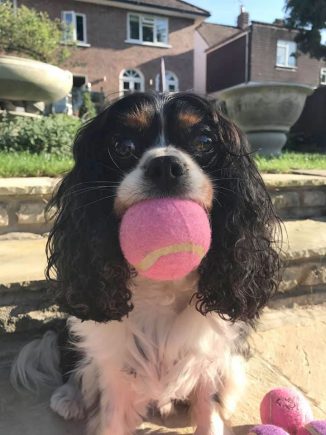
Mitral Valve Disease (MVD) or heart disease is the leading cause of death worldwide in the Cavalier King Charles Spaniel – the principal breed to suffer from the early onset type.
By the time they are ten years old, almost all Cavaliers are affected.
MVD is a polygenic disease (caused by more than one gene) afflicting over half of all Cavaliers by the age of five and nearly all Cavaliers by the age of ten.
Summary of Research
In collaboration with colleagues at the Royal Veterinary College in London, the Mitral Valve Clinic at Bristol University has identified specific genetic variants with MVD in Cavalier King Charles Spaniels. The researchers are now working to understand how these genes contribute to the changes in the valve.
A PhD student is investigating how and why the heart enlarges in response to the leak in the valve – particularly of interest is the importance of inflammation and the development of scar tissue in the heart muscle.
The researchers have also identified changes in the endothelial glycocalyx (the protective lining of the cardiovascular system) in dogs with MVD; more in-depth research is needed into these findings.
How You Can Help
The Mitral Valve Clinic at Bristol Veterinary School has been set up to collect information from Cavalier and other small breeds with MVD. Dogs with MVD (that are aged four and over and are free from murmurs) are asked to attend the clinic every six months for the rest of their lives so that researchers can follow any changes in their heart size and function. This will allow for accurate treatment recommendations.
At each visit, the following tests are carried out:
- Blood pressure measurement
- ECG recording to check heart rate and rhythm
- Echocardiogram – an ultrasound scan to check heart size and function
- Blood test
- Urine sample
If you are interested, please ask your vet to refer you to the Mitral Valve Clinic which is held at the Langford Small Animal Referral Hospital.
Contact details:
- Melanie Hezell email: mh16511@nullbristol.ac.uk
- Referral Hospital reception telephone: 0117 394 0513

